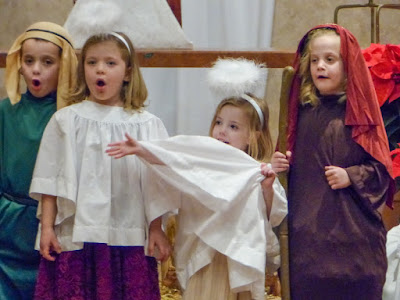Join us for Christmas Services
Dec 24th 5pm and 9pm
Dec 24th 5pm and 9pm
Dec 25th 9:30am
Luke 2:1-14 In those days a decree went out from Emperor Augustus that all the world should be registered. This was the first registration and was taken while Quirinius was governor of Syria. All went to their own towns to be registered. Joseph also went from the town of Nazareth in Galilee to Judea, to the city of David called Bethlehem, because he was descended from the house and family of David. He went to be registered with Mary, to whom he was engaged and who was expecting a child. While they were there, the time came for her to deliver her child. And she gave birth to her firstborn son and wrapped him in bands of cloth, and laid him in a manger, because there was no place for them in the inn.
In that region there were shepherds living in the fields, keeping watch over their flock by night. Then an angel of the Lord stood before them, and the glory of the Lord shone around them, and they were terrified. But the angel said to them, "Do not be afraid; for see-- I am bringing you good news of great joy for all the people: to you is born this day in the city of David a Savior, who is the Messiah, the Lord. This will be a sign for you: you will find a child wrapped in bands of cloth and lying in a manger." And suddenly there was with the angel a multitude of the heavenly host, praising God and saying, "Glory to God in the highest heaven,
and on earth peace among those whom he favors!”
Reflection Mary and Joseph are living in Roman occupied territory and the Emperor Augustus is exercising his power over “the whole world” in order to enhance his wealth by requiring all people to register in their ancestral homes and be taxed accordingly. Here we see a picture of worldly power exercised without regard to the suffering and hardship it causes vast swaths of ordinary folks, people like pregnant Mary and her fianceé Joseph whom we meet tonight trekking across the dangerous desert skirting vipers, tigers, scorpions and bandits, giving birth to their son in conditions barely fit for barn yard animals, wrapping him in rags and tucking him into a feeding trough.
At the same time we witness another story unfolding. An angel of the Lord, a messenger of God, breaks into this fear riddled night with a promise of light to poor shepherds who are ‘living in the field,’ poor men who stay awake all night to protect their sheep from predator wolves. Surely we are as startled as the shepherds to hear the angels decree, ”Do not be afraid; for see-- I am bringing you good news of great joy for all the people: to you is born this day in the city of David a Savior, who is the Messiah, the Lord. And this will be a sign for you, you will find the child (wrapped in rags and lying in a feeding trough.)”
Two dramatically different ways to imagine the identical situation. Seen through Emperor Augustus’ eyes, the child born in the City of David, wrapped in rags and tucked into a feeding trough is of no consequence beyond adding a mite to the his tax revenue. From the angel’s angle, the child born in the City of David, wrapped in rags and tucked into a feeding trough is of unspeakable consequence, “a Savior, who is the Messiah, the Lord,” and this is “good news of great joy for all the people.”
Angels, angelus, are messengers from God, and, if you have ever encountered an angel you know, angels bring with them the glory of God. We sang it in our Christmas Carol, “Angels we have heard on high singing sweetly through the night…. gloria in excelsis deo.” And again just before the reading of Luke’s gospel, “Hark the herald angels sing, glory to the newborn King!” Glorious exclamations of praise and joy. Christ is born. Our waiting is over. The promise of peace is fulfilled this night. This is the good news of great joy for all the people.
The questions before us this Christmas are several. “Through whose eyes do we choose to see the whole world? Through the self-serving eyes of the autocrat or the all-inclusive vision of the angels? In which story do we choose to participate? In Augustus’ me first, “power over” parable of selfishness or in the angel’s all inclusive narrative of generosity? How do we choose to imagine our world? As a resource from which to extract as much as possible or as a resource given to be revered and protected for the good of all? Which voice do we choose to embody? The disapproving shout of condemnation or the sanctifying voice singing praise to God?
Merry Christmas!
If you found this post to be meaningful please share by clicking on icons below. Thank you.




No comments:
Post a Comment